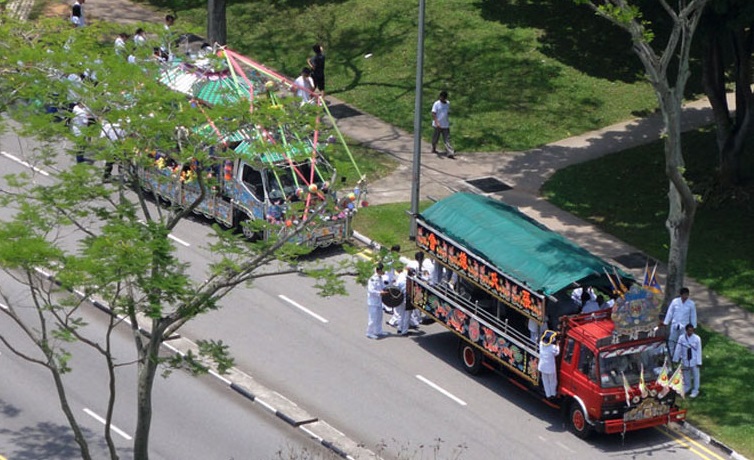By Bernard Chen
I will begin a new phase of my life at the end of this month in the funeral services industry. In life, death visits us on one singular occasion and our mortal bodies take a rest. Death is an especially sensitive topic in a society like Singapore. It remains masked until the very moment of death. Why this industry?
As a nation, Singapore finds itself striving relentlessly to improve its quality of life. Today, it must do more to enhance its quality of death. How to raise the quality of end-of-life care – so as to raise the quality of life itself – is more urgent a question than ever before, especially given our rapidly ageing population. As Singapore makes the inter-generational transition in the various respective industries, the funeral services industry finds itself without young professionals to bring it forward.
[quip float="pqright"] As a society, we have to be aware of the need to address death and embrace it, think of it, talk about it and prepare for it. A good start is to foster a national conversation, together with many smaller conversations among policy makers. [/quip]
As a society, we have to be aware of the need to address death and embrace it, think of it, talk about it and prepare for it. A good start is to foster a national conversation, together with many smaller conversations among policy makers. This is but a logical extension of existing conversations on “active ageing”, “retirement planning” and “ageing in place”.
What can a history major with experiences in the community and grassroots sector bring to the industry? More fundamentally, what can a young person in his late twenties like me contribute to the industry? In fact, there is much work to be done.
Funeral services industry largely unregulated
The funeral services industry remains a largely unregulated industry. Deeper issues such as the sketchy legislative framework and licensing regime continues to persist, and a professional code of conduct and standards within the industry remains elusive. All these issues require further examination.
[quip float="pqright"] Singapore is far from the “gold standard” in death care and young Singaporeans have a duty to address this. [/quip]
Singapore is far from the “gold standard” in death care and young Singaporeans have a duty to address this. The funeral industry forms part of the narrative of death care in society. The very notion of death care is about how the very end of life – the dead body itself – is treated, even after the very last breath has been exhaled. It is about communicating a deep and abiding sense of respect to the deceased, of a person being transferred “from your care into my care.” Quality, hygiene, professionalism, consideration, and a human touch are paramount. Essentially, the funeral industry need to best consider how to accord dignity to the human person. That human person is not just a body, it is Mum or Dad.
As a researcher, project executive and service provider in the industry, I served a larger societal purpose and responsibility in enhancing the perception of death and bereavement among the public through education, heritage and charity. This can be done through the preservation and documentation of the heritage and traditions of funeral industry, applying rigorous academic research and the creative use of oral history. There is also a need to uplift professional standards across the bereavement and funeral services industry. At the same time, there is ample space to better facilitate bereavement procedures for needy individuals and parties and establish cooperative partnerships with other bereavement industry players. But before we tackle the more challenging issues, let’s begin by educating ourselves on the death care industry and talking about the various end of life issues with our loved ones and if possible, plan and live with the end in mind. That would be doing our loved ones and the generations to come a great service.
As children, we often wish that our parents can stay healthy forever and go through life's every milestone with us. But that is not possible. We know that but we refuse to comprehend that possibility until we are left with little or no choice. As individuals within a larger collective society, are we prepared for the eventuality of death? Are we ready for our own death? Sadly, we are not. And if this short post of mine is able to ignite a short conversation between you, the reader and your loved ones and friends, I would have done my small little part in breaking the ice on the issues surrounding death care and correcting some long-held misconceptions of the funeral services industry.
Bernard Chen is a 29 year old S'porean who just graduated from Oxford University. The essay was reproduced with Chen’s permission.
Top photo from here.
If you like what you read, follow us on Facebook and Twitter to get the latest updates.
If you like what you read, follow us on Facebook, Instagram, Twitter and Telegram to get the latest updates.
